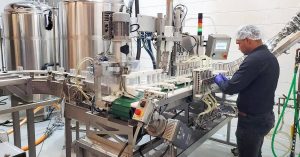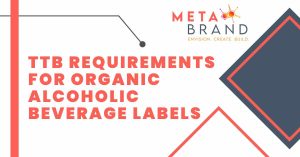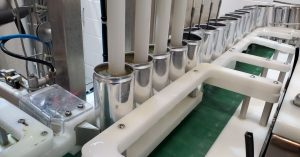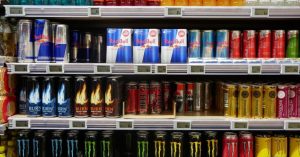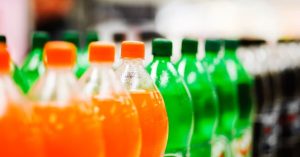Key Highlights
- The beverage industry is booming, making it a great time to start your own beverage company.
- Crafting a unique beverage concept involves developing a delicious recipe, creating eye-catching branding, and conducting pilot testing to gather feedback.
- A comprehensive business plan is crucial, outlining your startup costs, target audience, marketing strategies, and financial projections.
- Navigating legal requirements, including licenses, permits, and labeling regulations, is essential for a successful beverage startup.
- Partnering with beverage industry experts, from formulation to logistics, can streamline the process and set you up for success.
Introduction
The beverage industry shows no sign of slowing down. This makes it a prime time to join the excitement and create your own beverage company. A successful business starts with a strong foundation built on a great idea and strategic planning.
This comprehensive guide will provide a roadmap, covering key aspects of starting a beverage company, from crafting your product to navigating regulations and launching your brand.
Crafting Your Unique Beverage Concept
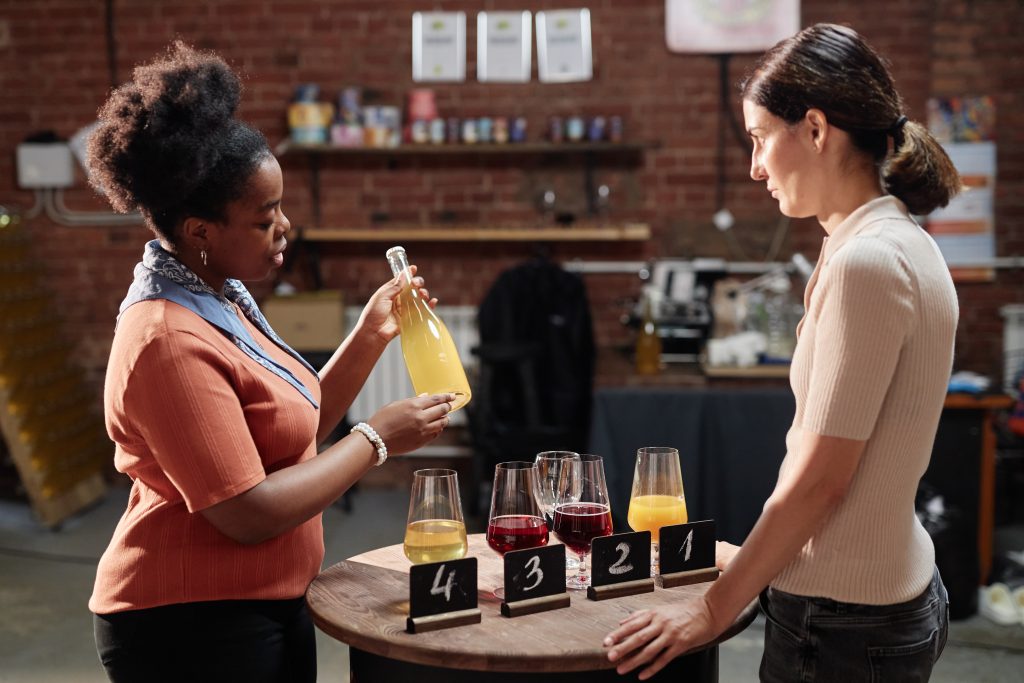
In a market saturated with choices, a unique beverage concept is paramount to success. This involves a multi-faceted approach. It’s more than just a drink; it’s about crafting an experience.
Start with a delicious and innovative recipe that caters to your target audience and current market trends. Your beverage should not only taste great but also tell a story. Consider the types of drinks currently trending, and look for ways to innovate.
Equally important is striking packaging that reflects your brand identity and captures the customer’s eye on crowded shelves. A memorable brand and appealing packaging will entice consumers to choose your product.
Finding Inspiration for Your Beverage Idea
Finding the perfect beverage idea to launch your brand can be equal parts exciting and challenging. It all starts with a great idea! But where do you find that great idea? One path is to think about the types of drinks you enjoy or see trending. Are you passionate about health drinks, artisanal sodas, or craft beers? Identifying your niche will focus your beverage vision and help attract your target demographic.
Consider exploring new and emerging flavor profiles and ingredients. Consumers are increasingly interested in unique, functional beverages. Consider incorporating ingredients like adaptogens, botanicals, or superfoods.
Don’t be afraid to experiment and think outside the box. Combine unexpected flavors, try different brewing or blending methods, and most importantly, have fun with the process! The more passion you pour into your product, the more it will resonate with consumers.
Developing a Unique Selling Proposition (USP)
Crafting a unique selling proposition (USP) is crucial for a beverage company. Your USP sets you apart in the competitive market, attracting your target audience. Utilize NLP insights to identify what will resonate with consumers – whether it’s health benefits, innovative flavors, or sustainability practices. Engage with industry experts to refine your USP, ensuring it aligns with current trends and consumer preferences. A compelling USP not only differentiates your beverage product but also forms the foundation of your marketing strategy. It’s the key to building a successful and recognizable brand in the saturated beverage industry.
Essential Resources for Beverage Company Startups
Launching a successful beverage company requires a combination of essential resources, from state-of-the-art equipment to trusted ingredient suppliers and strategic partnerships.
Investing in high-quality equipment is essential to ensure efficient production and a consistently excellent product. At the same time, establishing reliable supply chains for ingredients and packaging is vital for maintaining quality and managing costs. This includes researching and partnering with suppliers who align with your brand values, offering competitive prices, and consistently delivering excellent ingredients.
Overview of Necessary Equipment and Technology
The specific equipment needed will vary greatly depending on the type of beverage, production volume, and level of automation desired. However, several key pieces of equipment are common in most beverage manufacturing processes.
These include industrial-grade brewing systems, mixing tanks, filtration systems, bottling or canning lines, and labeling machines. Each plays a crucial role in producing a high-quality, consistent product. Additionally, investing in technology such as temperature control systems, automated cleaning equipment, and inventory management software can help optimize production and maintain high standards.
As you scale your beverage company, remember that staying abreast of the latest advancements in beverage technology can give you a competitive edge, streamline operations, and lead to a superior product.
Sourcing Quality Ingredients and Reliable Suppliers
High-quality ingredients are the foundation of a great-tasting beverage. Sourcing these ingredients from trusted suppliers is crucial to maintaining consistent quality and flavor in every batch.
When choosing suppliers, consider factors like:
- Ingredient quality and certifications
- Supplier reputation and reliability
- Pricing and payment terms
- Minimum order quantities and delivery capabilities
- Shared values and commitment to sustainability
Building strong relationships with your suppliers is equally important. Open communication and collaboration will ensure a smooth sourcing process and help you navigate any challenges.
Step-by-Step Guide to Launching Your Beverage Company
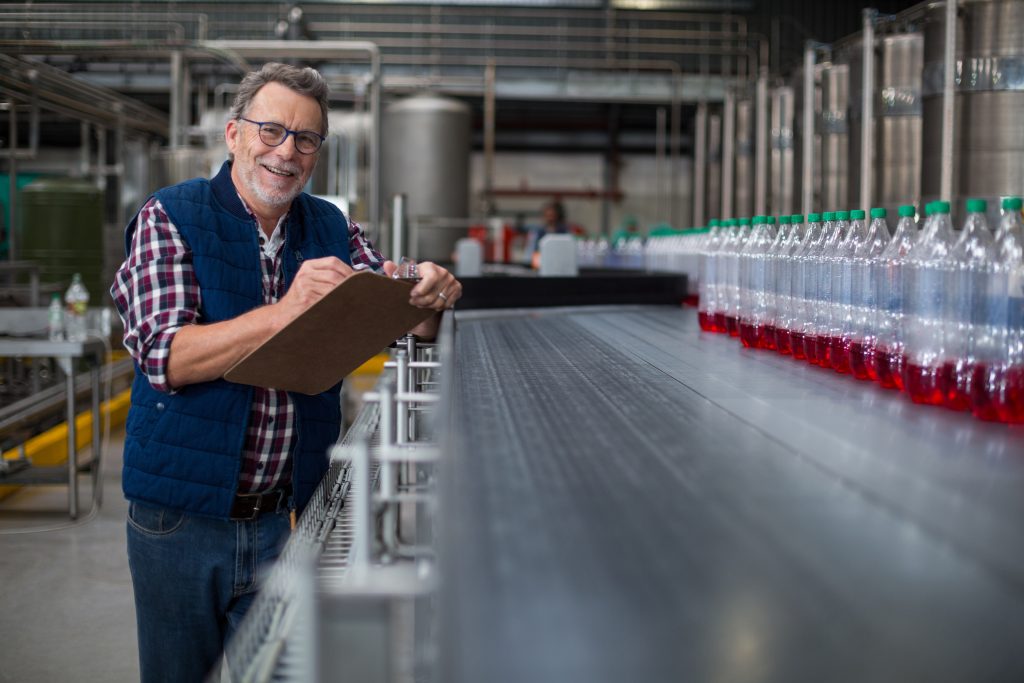
Launching a beverage company involves a series of strategic steps. It requires a well-structured plan to execute your vision successfully.
Begin by conducting thorough market research to identify your target audience, analyze competitors, and understand industry trends. This information will help you make informed decisions about your product, pricing, and marketing. Develop a comprehensive business plan outlining your financial projections, marketing strategy, and operational plan.
This will serve as a roadmap for success. Next, secure the necessary funding to cover startup costs and operational expenses. Explore options like bootstrapping, seeking investors, or applying for loans.
Finally, focus on developing a compelling brand, creating buzz through social media, and building relationships with distributors.
Step 1: Creating a Detailed Business Plan
A detailed business plan is the foundation for a successful beverage startup. It’s a roadmap outlining your vision, strategies, and financial projections. Start by clearly defining your target audience and their needs. Consider demographics, lifestyle, and beverage preferences. Next, research the market size and potential growth within your chosen niche.
Identify your direct and indirect competitors, and analyze their strengths and weaknesses. What makes your beverage startup unique and competitive in the marketplace? A thorough competitive analysis will help you develop effective marketing and pricing strategies.
Your business plan should also include financial projections, outlining your anticipated startup costs, revenue, and expenses. A well-structured financial plan helps secure funding and manage your finances effectively.
Step 2: Securing Funding and Managing Finances
Securing funding is essential to get your beverage company up and running. Different funding options align with various business models and risk tolerances. Bootstrapping, using your own savings or personal investments, provides complete control but limits the initial capital available.
Seeking investors, such as angel investors or venture capitalists, can bring significant capital and expertise, but it usually requires giving up equity in your company. Alternatively, loans from banks or credit unions can provide needed cash flow but come with interest rates and repayment schedules. Carefully evaluate each funding option and choose the one that aligns with your goals and risk tolerance.
Once you secure funding, managing your finances efficiently is essential. This includes tracking income and expenses meticulously, setting budgets, and monitoring cash flow. Consider using accounting software to simplify financial management and ensure accuracy.
Step 3: Branding and Packaging Design
In a crowded market, impactful branding and packaging are crucial for attracting consumers’ attention. Your brand represents your company’s identity, values, and promise to customers.
Start by crafting a memorable logo and developing a consistent visual identity that reflects your brand personality and appeals to your target market. Consider using colors, fonts, and imagery that evoke the desired emotions and associations with your beverage.
The packaging is your product’s first point of contact with consumers, and it plays a crucial role in purchase decisions. Choose packaging materials, shapes, and sizes that are both visually appealing and functional. Highlight your brand logo and messaging clearly, while also ensuring the packaging protects the quality and integrity of your beverage.
Step 4: Navigating Legal Requirements and Certifications
Navigating the legal landscape is crucial to running a successful and ethical beverage company. Familiarize yourself with the regulations specific to your type of beverage, whether it’s non-alcoholic, alcoholic, or a dietary supplement. This includes obtaining the necessary licenses and permits to operate legally.
Ensure that your product labeling complies with all FDA regulations, including accurate ingredient lists, nutritional information, and any required health warnings. Failure to meet labeling requirements can result in costly fines and product recalls.
Additionally, consider obtaining certifications that align with your brand values and target audience. This could include organic certification, non-GMO verification, fair trade certification, or kosher certification. These certifications can help build trust with consumers and differentiate your brand.
Step 5: Setting Up Production and Distribution Channels
There are several avenues to explore when setting up production. Many beverage startups opt to work with contract manufacturers or co-packers, especially in the early stages. Co-packers handle the manufacturing, packaging, and labeling of your product to your specifications. Using a co-packer allows you to focus on sales, marketing, and brand building without the overhead costs of owning a production facility.
Effective distribution channels are essential for getting your beverage into consumers’ hands. Carefully analyze your target market and choose distribution channels that align with their purchasing habits.
| Distribution Channel | Description |
| Direct to Consumers (D2C) | Selling online or at farmers markets |
| Retail Partnerships | Collaborating with grocery stores, convenience stores, or specialty retailers |
| Food Service | Partnering with restaurants, cafes, or bars |
Cheers!
Starting a beverage company requires a solid foundation of creativity, resources, and strategic planning. Crafting a unique beverage concept with a compelling selling proposition is crucial for success in the competitive industry.
From sourcing quality ingredients to navigating legal requirements, each step plays a vital role in launching your product effectively. By following a detailed business plan and securing necessary funding, you can bring your beverage idea to life.
Remember, success in the beverage industry demands dedication, innovation, and a thorough understanding of market trends.
If you are ready to embark on this exciting journey, get in touch with us for expert guidance and support.



